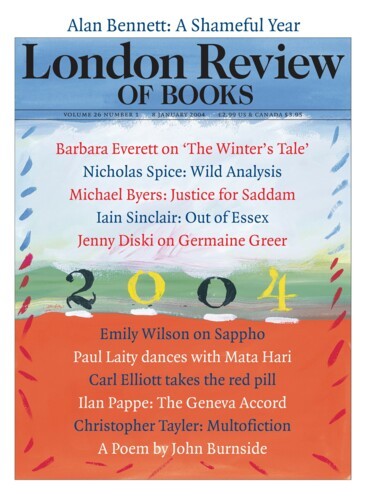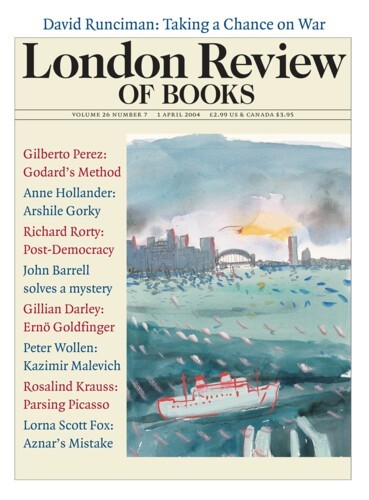Tongue breaks: Sappho
Emily Wilson, 8 January 2004
Some time around the ninth century, Sappho’s nine books were irrecoverably lost. We have some tantalising scraps, single lines and short quotations, but only one complete poem – the ‘Ode to Aphrodite’ (Fragment 1), which is quoted by Dionysius of Halicarnassus. A few longish passages from other poems have been preserved in other authors: the most famous is Fragment 31...





